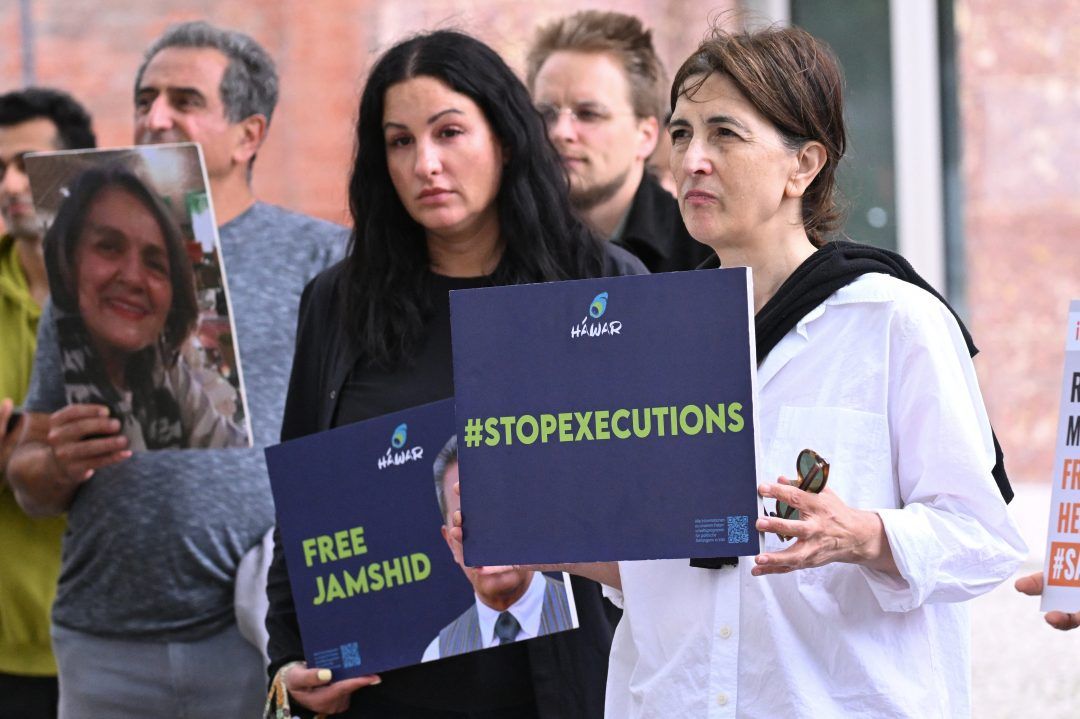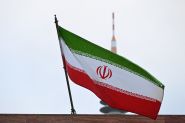- Home
- Middle East
- Human Rights Watch Condemns Surge in Iranian Executions

© INA FASSBENDER / AFP
Iran executed at least 87 people in the month after the recent presidential elections, reports Human Rights Watch (HRW).
HRW reports that on August 7 alone, authorities carried out a mass execution of 29 prisoners.
In the report, HRW condemned the surge, stating, “Human Rights Watch opposes the use of the death penalty in all circumstances because of its inherent cruelty.”
Iran has also executed Reza Rasaei, a Kurdish man arrested during the 2022 nationwide protests, following the death of 22-year-old Mahsa Jina Amini.
“The Iranian authorities are carrying out an egregious execution spree while trumpeting their recent presidential elections as evidence of genuine change,” said Nahid Naghshbandi, acting Iran researcher at Human Rights Watch.
The Iranian government frequently uses the death penalty as a means to control internal dissent, often in response to protests, and often following trials containing grave violations of due process.
“Iran’s use of the death penalty as a tool of intimidation following unfair trials, particularly against those seeking government reform, reveals a chilling abuse of power,” Naghshbandi said.
Iran Human Rights reported that Iranian authorities executed 249 people in the first six months of 2024, with 147 of them sentenced to death on drug-related charges.
Amnesty International also reported that Iran was responsible for 74% of all recorded executions worldwide in 2023, with a total of 853 executions.
HRW reports that on August 7 alone, authorities carried out a mass execution of 29 prisoners.
In the report, HRW condemned the surge, stating, “Human Rights Watch opposes the use of the death penalty in all circumstances because of its inherent cruelty.”
Iran has also executed Reza Rasaei, a Kurdish man arrested during the 2022 nationwide protests, following the death of 22-year-old Mahsa Jina Amini.
“The Iranian authorities are carrying out an egregious execution spree while trumpeting their recent presidential elections as evidence of genuine change,” said Nahid Naghshbandi, acting Iran researcher at Human Rights Watch.
The Iranian government frequently uses the death penalty as a means to control internal dissent, often in response to protests, and often following trials containing grave violations of due process.
“Iran’s use of the death penalty as a tool of intimidation following unfair trials, particularly against those seeking government reform, reveals a chilling abuse of power,” Naghshbandi said.
Iran Human Rights reported that Iranian authorities executed 249 people in the first six months of 2024, with 147 of them sentenced to death on drug-related charges.
Amnesty International also reported that Iran was responsible for 74% of all recorded executions worldwide in 2023, with a total of 853 executions.
Read more



Comments